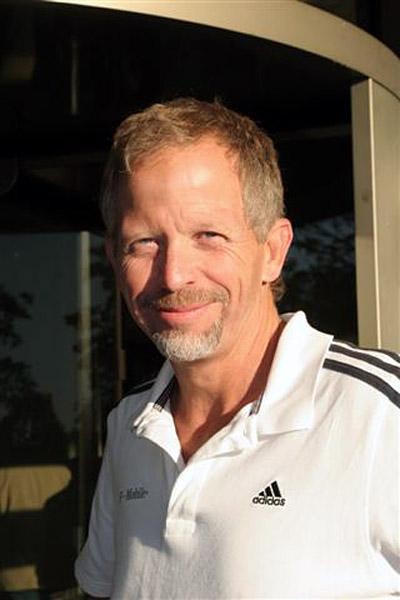High Road signs with ACE for anti-doping programme
By Susan Westemeyer Team High Road's anti-doping programme for 2008 will be run by the Agency for...

By Susan Westemeyer
Team High Road's anti-doping programme for 2008 will be run by the Agency for Cycling Ethics (ACE), which also runs the program for the American Professional Continental Team Slipstream. High Road manager Bob Stapleton called it "the most comprehensive program out there. It is what the team needs and what the sport needs."
According to the team's press release, each rider on the team will undergo at least 26 random tests each for blood and urine. This high number of tests will allow ACE "to build profiles of each individual rider so that they will be able to detect small changes in the body chemistry that may be caused by blood transfusions or banned substances. The profiles will use blood and urine to build hematological parameters and a urinary steroidal profile. ACE will send test results to the UCI, to WADA [World Anti-Doping Agency] and to the team."
The profiles will complement the news biological passports which the WADA and UCI are introducing for the 2008 season.
Anne Gripper, head of the UCI's anti-doping section, said that "the Agency for Cycling Ethics (ACE) assists cycling teams to create a doping-free culture by providing a robust, independent and transparent anti-doping program." She lauded the team's decision to work with this group, saying, "Bob Stapleton and High Road Sports continue to demonstrate leadership in this regard. By initiating a comprehensive team-based anti-doping program delivered by the Agency for Cycling Ethics (ACE), by actively supporting the UCI in their broad anti-doping efforts and most importantly, by actively working to create a doping-free culture within their team, they are a role model for other teams to follow."
The work has already begun, Stapleton noted. "We started with the first testing at our team meeting in October, and we are very pleased to see that our riders understand the importance of these strict measures. We believe frequent comprehensive testing and using profiles that detect small changes in body chemistry are invaluable tools to ensure the future of the team in the sport. The testing will keep us more informed about the conduct and health of our athletes."
Paul Strauss, CEO of ACE, said that he was excited to be working with the ProTour team. "For us it is great to have the opportunity to participate in this positive change, not only with Team High Road, but with the whole sport of cycling."
Get The Leadout Newsletter
The latest race content, interviews, features, reviews and expert buying guides, direct to your inbox!
ACE called its program "a comprehensive anti-doping programme that tests for three categories of abuse – blood doping, anabolic steroid use and hormone use, such as hGH [human growth hormone]."
The company says that its "extensive use of longitudinal analysis is a sharp departure from traditional anti-doping techniques and it allows ACE to detect possible doing earlier, longer after administration has stopped and doping in much smaller quantities when compared to traditional anti-doping. Additionally, and perhaps most importantly, it also allows the detection of doping by means and substances currently completely undetectable by traditional anti-doping."
Blood doping, for example, is usually only detectable for four to six days after use. But under the ACE program, "this doping would remain detectable for over four to six weeks." For urine testing, the company screens "for the direct detection of over 70 substances on the WADA banned substances list, with more being added every day."
The most difficult to test for is human growth hormone "because it returns to normal so quickly after administration. However, ACE has had some success in detecting hGH use because of its combination of high frequency testing and longitudinal analysis. Currently, hGH use is undetectable with traditional means of anti-doping."